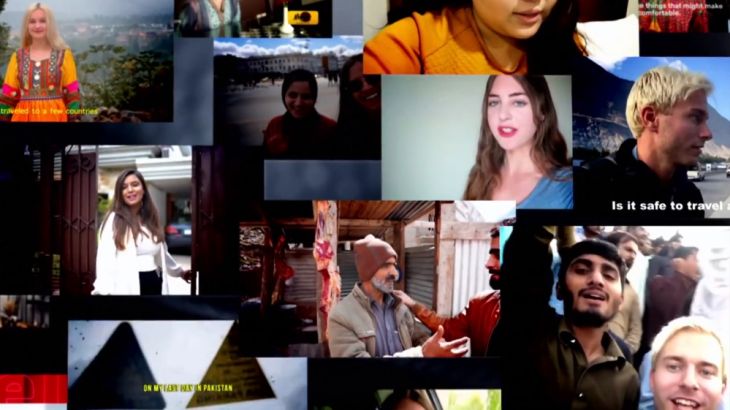
Pakistan’s New Look: Foreign vloggers rebranding the country
Authorities are trying to improve the image of Pakistan by giving travel vloggers special access.
Pakistan has an image problem. For years, the country has been synonymous with drone attacks, religious extremism, and political instability; ever since the 9/11 attacks and the killing of Osama bin Laden in 2011, the international media have viewed Pakistan almost exclusively through the lens of terror and violence.
The chairman of Pakistan’s National Tourism Coordination Board, Sayed Zulfikar Bukhari, thinks it is unfair and that a reassessment of Pakistan’s public image is long overdue. “We’ve gone leaps and bounds beyond it,” says Bukhari. “The people of Pakistan have moved on, so it’s about time the world also moves on with it.”
Keep reading
list of 4 itemsNPR editor resigns after accusing US outlet of liberal bias
Lawmakers brawl as Georgian Parliament considers ‘foreign agent’ bill
Journalist loses foot after being badly wounded in Israeli attack in Gaza
It is a problem that governments might once have tackled by spending billions on international public relations campaigns, glossy magazine advertisements, and prime-time television commercial spots. These days, however, the trick is to bring on the travel vloggers – young telegenic globe trotters with huge online audiences whose content is watched by millions, daily.
“I think just looking at how quickly the image of Pakistan has changed in literally 18 months, that’s huge,” says Eva zu Beck, a Polish travel vlogger, and one of many who have made trips to Pakistan in the past few years. “I mean, the country was almost off limits to most travellers for, like, a decade. And then all of a sudden everything changed … I think it shows the power of social media and travel vlogging in general.”
For some Pakistanis, however, the positive publicity brought by foreign social media influencers is cause for concern rather than celebration. This is because the influencers often appear to enjoy privileged access to certain parts of the country that are largely off limits even to Pakistanis, areas such as Balochistan, a hotspot for militarism and unrest tightly policed by authorities, but which has hosted a steady stream of travel vloggers over the past two years.
Aneeqa Ali told The Listening Post’s Meenakshi Ravi: “For normal Pakistani travellers, not just for journalists, it would not be easy for them to get access to these areas.”
As a Pakistani travel agent, Ali knows first-hand the difficulties of securing the kinds of clearances and access many of these influencers seemingly take for granted. “The problem comes when you actually show on the media that, you know, you can go there, you can travel there and it’s the next destination and you’re gonna have a wonderful time … but actually, on ground, that’s not the reality.”
The Pakistani government has had some success partnering with foreign social media influencers to improve perceptions abroad, but at home, the strategy is proving less popular. Some Pakistanis are frustrated that the image of the new Pakistan has been defined predominantly by white Western faces.
“It’s one thing promoting your tourist industry, and another thing feeding an Anglo-centric narrative,” says Ahmer Naqvi, a Pakistani journalist and cultural critic based in Karachi. “How is it that when you’re speaking from Pakistan, you have non-Pakistanis speaking for it, and people from Pakistan themselves are not allowed, or not available, to be part of this?”
Produced by: Meenakshi Ravi & Ahmed Madi
Contributors:
Ahmer Naqvi – Karachi-based cultural critic
Aneeqa Ali – Lahore-based travel agent
Eva zu Beck – Travel vlogger
Sayed Zulfikar Bukhari – Chairman, National Tourism Coordination Board